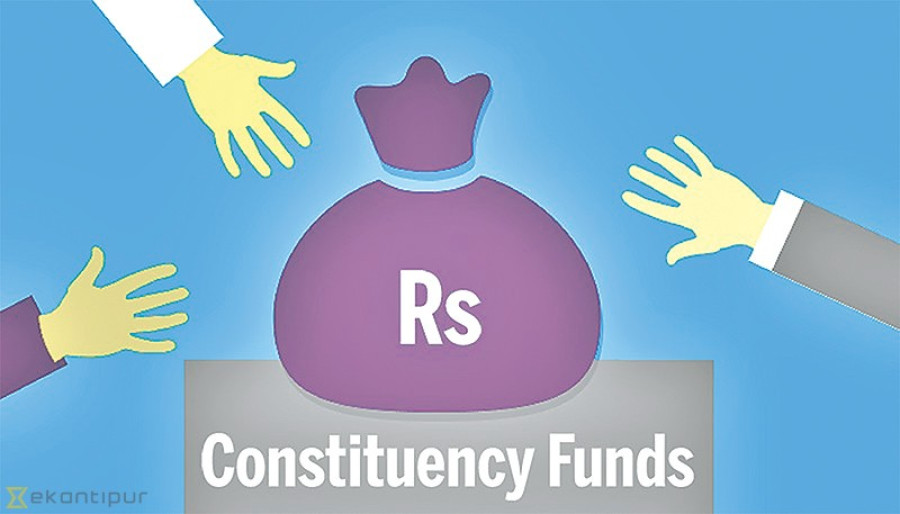Editorial
MPs should stick to legislating and let local units carry out development plans
The budget is around the corner. This means lawmakers have started seeking pork barrels for their constituencies like it is an annual function they all need to participate in.
The budget is around the corner. This means lawmakers have started seeking pork barrels for their constituencies like it is an annual function they all need to participate in. Last year, under the Local Infrastructure Partnership Programme, an allocation of Rs40 million each was announced through the budget. Now, they are demanding more than double the budget, saying that it is a meagre and insufficient amount to carry out the expected development tasks in their constituencies. They are building pressure on the government to increase the budget to Rs100 million each and revive the constituency development programme. This, unsurprisingly, is one rare area where there is cross-party consensus.
Constituency Development Funds are funding arrangements that channel money from the central government directly to electoral constituencies for local infrastructure projects through lawmakers. Such funding arrangements will have a negative impact on accountability, service delivery, and development that most poor countries like ours can ill afford. Rather, independent structures are required at the grassroots to track the progress of development projects as well as discourage misappropriation and mismanagement of Constituency Development Funds.
The provision of development funds for lawmakers was initiated to address development and governance. When the practice started in the 1990s, Nepal was still governed by a unitary system of government where all power was centralised in one place. Come today, the country has now been transformed from a unitary to a federal system. With the transition, the task of development has now been handed over to the provincial governments and legislatures. This is a time when state governments need to be strengthened. Continuing the practice of allocating a special budget for Members of Parliament so that they can spend that on development and infrastructure projects in their respective constituencies will undermine devolution.
As it is, the chief ministers from various provinces have been expressing displeasure that they lack resources and infrastructure. Given that, if the government still succumbs to pressure from lawmakers and focuses on disbursing resources to members of the federal Parliament, it would mean that the central government will continue to have more responsibility and authority over development issues than the provincial governments. Instead of trying to take matters into their own hands, the lawmakers should be invested in making coherent and transparent plans that the local and provincial level representatives can execute.
Independent studies carried out by various institutes in the past have proved the total failure of the pork barrel fund. Yet, if lawmakers lobby for its continuation, it only reflects their intention to dry state coffers but do nothing in return. Much of the funds allocated have gone to waste and done little more than appease the influential cadres and the vote bank of the elected representatives. True, the Members of Parliament had their own manifestos and promised a lot to their constituencies during the election, but demanding that the money for the Local Infrastructure Partnership Programme be doubled and the Constituency Development Fund be revived is not the appropriate way to accomplish them. The elected officials should stick to their job of monitoring government activities and not managing them.




 9.51°C Kathmandu
9.51°C Kathmandu














